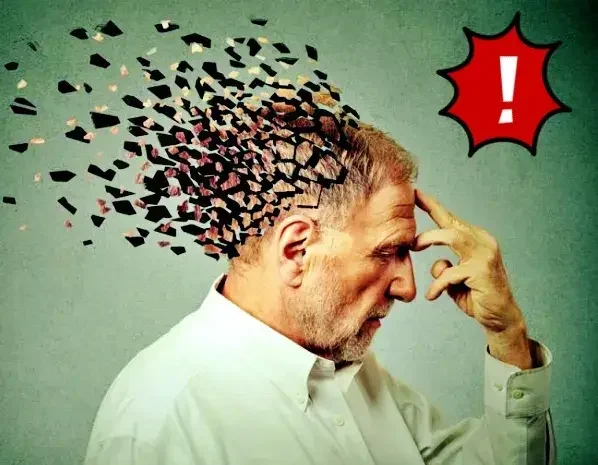Memory Paradox. Ah, human memory! It’s an enigma, isn’t it? One moment it can conjure up the most vivid details from decades past, and the next, you’re staring blankly, wondering where you left your keys.
It’s a vast, intricate, and often perplexing system that continues to fascinate scientists and everyday people alike.
Let’s dive into the incredible world of human memory, exploring its astounding capacity, its peculiar quirks, and the cutting-edge research that’s constantly reshaping our understanding.
Memory Paradox, Astonishing Scope and Peculiar Flaws of Human Memory.
The sheer capacity of the human brain is mind-boggling. Scientists estimate that our brains can store anywhere from 5 to 20 petabytes of information.
To put that into perspective, 5 petabytes is roughly equivalent to the entire global web! Or, to give you an even better visual, imagine 13 years of continuous, uninterrupted HD video recording.
That’s the staggering amount of data our brains are theoretically capable of holding.
This impressive figure certainly highlights memory’s immense potential. Yet, despite this incredible power, we constantly encounter the strange whims of our memory.
Why is it that, with such a potent memory, we so often forget where we put our phone, or what time it is just seconds after looking at a clock? These seemingly minor, yet baffling, memory lapses raise profound questions about how our memory truly operates.
It’s not a simple recording device; it’s a dynamic, complex system influenced by a myriad of factors, both internal and external.
Human Memory.
Facts and Paradoxes.
Human memory is far from a simple storage unit where information is neatly recorded and filed away. Instead, it’s a dynamic, ever-changing system. It’s more like a constantly evolving story we tell ourselves, influenced by emotions, new experiences, and even our own biases.
The Photo-Taking Impairment Effect.
Is Your Camera Stealing Your Memories?
In our increasingly digital world, we’re constantly snapping photos of everything around us. But could this seemingly harmless habit actually be hindering our ability to remember?
Scientists at the University of California conducted a fascinating experiment that suggests just that: photographed objects tend to be erased from our memory faster.
In this experiment, 50 students were divided into three groups and shown identical images. The first group photographed the images with a smartphone, the second group photographed them and then deleted them after a few minutes, while the third group simply viewed the images without taking any pictures.
Later, when all the students were asked to recall what they had seen, those who did not photograph the images performed most successfully.
This phenomenon, dubbed the “photo-taking impairment effect,” suggests that when we rely on our camera as a memory aid, we exert less effort to actively encode the information, thereby reducing the effectiveness of its memorization.
It seems that the act of outsourcing our memory to a device can paradoxically weaken our natural ability to recall.
This highlights a crucial point: active engagement with information is key to retaining it. When we simply point and click, we might be disengaging our memory processes.
Memory Isn’t Objective.
The Power of Pain and Experience.
Have you ever noticed how certain experiences, especially painful or emotionally charged ones, stick with you far more vividly than mundane events?
Nobel laureate and psychologist Daniel Kahneman, who has extensively researched the phenomenon of human memory, concluded that we don’t remember what actually happened, but rather what affected us emotionally, often what hurt or inconvenienced us.
Kahneman proposes the idea of two “selves”: the “experiencing self” and the “remembering self.”
The experiencing self lives through an event, while the remembering self stores memories of it and evaluates them. Often, these two “selves” can diverge significantly.
A vivid example of this is a participant in Kahneman’s experiment who enjoyed a beautiful musical performance, but the overall impression of the event was ruined by an unpleasant noise at the very end of the concert.
Although the person felt joy for most of the time, the memory of the event was tainted by the last, negative impression. As a result, the “remembering self” recalled this unpleasant noise, rather than the generally pleasant concert.
This illustrates the influence of the “peak-end rule” on memory – we tend to remember the most intense moment of an event and its ending, rather than the entire course of the event.
This means that our overall evaluation of an experience can be heavily weighted by the emotional peak and the conclusion, regardless of how the majority of the event unfolded.
Memory Disorders and False Memories.
The intricacies of memory also extend to its vulnerabilities, where our recollections can be distorted, erased, or even entirely fabricated.
Depression and Memory Loss.
A Neurobiological Link.
Mental health has a profound impact on cognitive functions, including memory. German neurologists from Ruhr University have developed a mathematical algorithm that can calculate the impact of depression on human brain cells.
By examining the brains of volunteers with depressive symptoms, scientists concluded that severe depression can erase some past memories.
For individuals who are chronically depressed, the formation of new nerve cells (neurogenesis) slows down in the hippocampus a part of the brain crucial for forming new memories. This can deform our memories and lead to memory loss concerning past events.
This discovery underscores the neurobiological link between mental health and cognitive functions. It suggests that addressing mental health issues like depression can also have a positive impact on preserving memory and cognitive abilities.
Confabulation.
The Illusion of False Memories.
Sometimes, our memories are “erased,” and the psyche can fill these empty spaces with something that didn’t actually happen. This phenomenon is called confabulation.
It often occurs in relation to events in the distant past, such as recalling something from childhood, or confusing dreams with real events. If such “memory hallucinations” occur frequently, it can indicate progressive amnesia or other neurological disorders.
The susceptibility to false memories can be determined by conducting tests. For example, participants are asked to memorize a list of several words and then repeat them. If the person says a word that was never on the list, it is considered confabulation.
These tests help to understand the reliability of memory and identify potential cognitive problems. It highlights that memory isn’t a perfect recording; it’s a reconstructive process, and sometimes, those reconstructions can go awry.
Future Possibilities and the Mysteries of Memory.
The ongoing research into human memory is not only shedding light on its current mechanisms but also exploring groundbreaking possibilities that once seemed confined to the realm of science fiction.
Science Fiction or Reality?
Downloading Knowledge
Imagine a scenario where you could learn a new foreign language simply by “downloading” knowledge from a teacher’s brain into your own. This sounds like science fiction, but scientists are actively researching such possibilities.
Scientists at the University of California have understood how, by extracting RNA molecules, memory can be transferred from one mollusk to another.
Although the mollusk’s neuronal system is much simpler than a human’s, researchers are confident that the information transfer algorithm in our brains works similarly. Such studies open the door to enormous opportunities in education, rehabilitation, and even the development of artificial intelligence.
However, it is important to remember that this field is still in its early stages of development, and significant research is needed to make such technologies a reality.
Furthermore, such possibilities would also raise significant ethical questions that would need to be carefully considered. The idea of “downloading” memories or skills brings with it a host of implications for identity, free will, and the very nature of learning.
The Link Between Sleep and Memory.
New Discoveries in Alzheimer’s Disease.
The quality of sleep and a regular sleep schedule are crucial for memory consolidation and overall brain health. Scientists at the University of Washington, after examining 189 volunteers, discovered a new symptom of Alzheimer’s disease: peptides that provoke memory impairment prevent people from sleeping peacefully at night and staying awake during the day.
This indicates a close link between sleep disorders and the development of Alzheimer’s disease.
People who follow a regular circadian rhythm, waking up on time in the mornings and going to sleep in the dark, are, incidentally, less likely to suffer from chronic illnesses that cause memory impairment in old age. Sufficient and quality sleep allows the brain to clear toxins and consolidate memories acquired during the day.
This discovery emphasizes the importance of sleep hygiene in memory preservation and the prevention of Alzheimer’s disease. Prioritizing good sleep isn’t just about feeling rested; it’s a vital component of long-term cognitive health.
Final Thoughts.
Human memory is an amazingly complex and multifaceted phenomenon. Its enormous potential coexists with paradoxical fragilities and imperfections. Understanding how our memory works, its strengths and weaknesses, helps us better utilize its potential and protect it from adverse factors.
Whether we’re forgetting where we put our keys or looking for ways to improve our memory, research into human memory continues to reveal fascinating and instructive facts that change our understanding of ourselves.
It’s a field that constantly reminds us of the incredible intricacies of the human mind and the endless possibilities for discovery.
What do you find to be the most interesting discovery about human memory?





